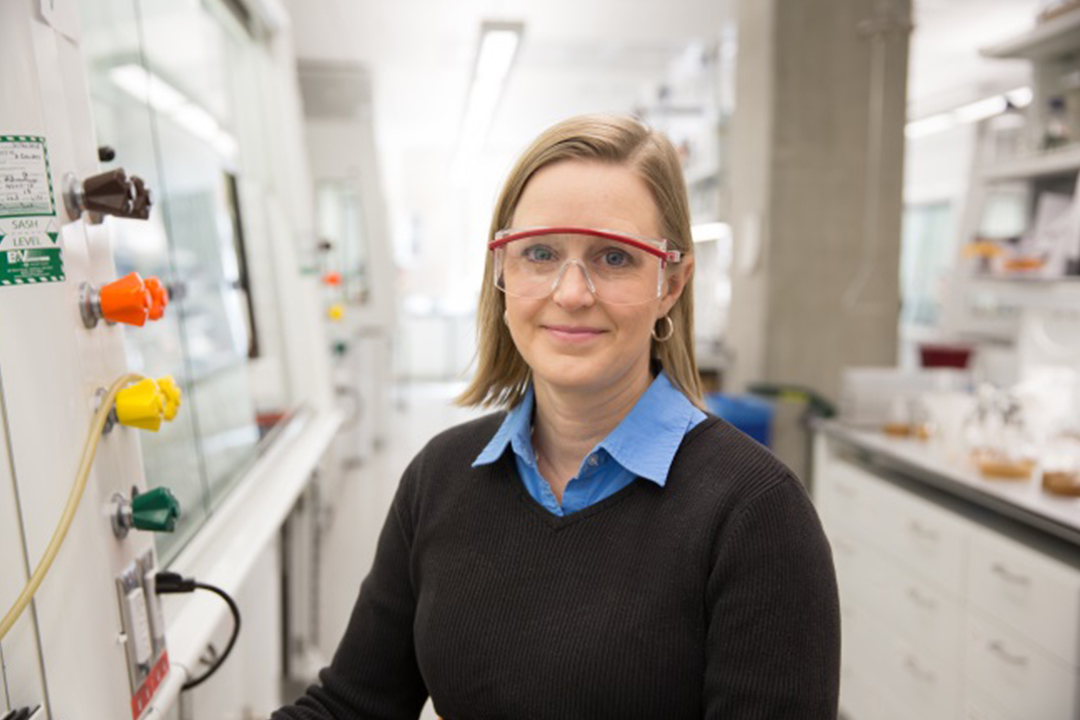With a $2.6 million grant from the National Institutes of Health (NIH), Associate Professor of Chemistry Cynthia Dowd will spearhead research on techniques for treating malaria and tuberculosis. As infectious diseases become ever-more drug resistant, Dowd will lead a team of researchers at five institutions to investigate new approaches to the chemical reaction by which malaria and TB spread.
The research focuses on identifying enzyme inhibitors (molecules that stop a specific biochemical reaction) to fight the pathogens that cause malaria and tuberculosis. The enzyme, 1-deoxy-D-xylulose-5-phosphate reductoisomerase (DXR), is responsible for a chemical reaction necessary for malaria parasites and tuberculosis bacteria to survive. The inhibitors are designed to stop DXR, thus killing the pathogens.
“Drug resistance is so rampant that we need to design new ways to treat these diseases. This is one way to keep the issue in the spotlight,” said Dowd. “The fact that the NIH is putting funds into this research on infectious diseases is very significant.”
Dowd is collaborating with four labs. Her lab within Columbian College’s Department of Chemistry will perform the small molecule design and chemical synthesis; an NIH lab will run tuberculosis testing; Washington University in St. Louis will conduct the malaria testing; George Mason University will study enzymes from different pathogens; and Saint Louis University will examine the fates of the molecules in animals.
“Dr. Dowd’s research is an important example of how we can work across disciplines and institutions to find solutions that will help improve public health on a global scale,” said Ben Vinson, dean of Columbian College. “We applaud researchers like her who see the value of collaboration across institutions, sharing resources and brain power to better the world.”
The research is funded by the National Institute of Allergy and Infectious Diseases, part of the NIH.


